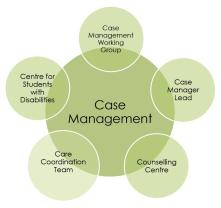How do you become an oral surgeon?
Becoming an oral surgeon is a highly specialized and demanding career path that requires several years of education and training. Here are the typical steps to become an oral surgeon:
1. Obtain a Bachelor's Degree (4 years):
- Start by earning a bachelor's degree in a science-related field, such as biology, chemistry, or pre-dentistry. It's important to maintain a high GPA and gain a strong foundation in the sciences.
2. Complete Dental School (4 years):
- After obtaining a bachelor's degree, you must attend dental school, which typically takes four years. Dental school programs grant a Doctor of Dental Medicine (DMD) or Doctor of Dental Surgery (DDS) degree. During dental school, you will receive extensive education and clinical training in general dentistry.
3. Gain Licensure (Varies by Location):
- To practice as a general dentist, you will need to obtain a dental license by passing the National Board Dental Examination and a state or regional clinical licensing exam. Requirements vary by location, so check with the dental board in your state or country for specific licensing requirements.
4. Gain Clinical Experience (1-2 years):
- After dental school and licensure, many aspiring oral surgeons choose to gain additional clinical experience. This can be achieved by working as a general dentist or in a dental residency program. Some oral surgery residency programs may accept applicants directly out of dental school, while others prefer candidates with a few years of clinical experience.
5. Complete an Oral and Maxillofacial Surgery Residency (4-6 years):
- To become an oral surgeon, you must complete a highly competitive oral and maxillofacial surgery residency program, which typically lasts four to six years. These programs are offered at hospitals and medical centers and provide advanced training in surgical techniques related to the face, jaw, mouth, and neck. During the residency, you'll gain experience in procedures like tooth extractions, dental implants, facial trauma reconstruction, orthognathic surgery, and more.
6. Obtain Board Certification (Optional):
- While board certification is optional, it is highly recommended for oral surgeons seeking to demonstrate their expertise and competence. Board certification is granted by organizations like the American Board of Oral and Maxillofacial Surgery (ABOMS) and typically involves written and oral exams.
7. Secure State Licensure (Required):
- To practice as an oral surgeon, you will need to obtain a state or regional license to perform surgery. Requirements may vary by location, so check with the relevant licensing authority for specific details.
8. Consider Fellowship Training (Optional):
- Some oral surgeons pursue fellowship training in specialized areas, such as cleft and craniofacial surgery, temporomandibular joint (TMJ) surgery, or oral oncology, to further enhance their expertise.
9. Stay Current and Pursue Continuing Education:
- As with any medical profession, it's essential to stay up-to-date with the latest advancements in oral and maxillofacial surgery through ongoing continuing education and professional development.
Becoming an oral surgeon is a lengthy and challenging process, but it offers the opportunity to provide specialized surgical care for patients with a wide range of oral and facial conditions. It's important to research and choose a reputable residency program and seek mentorship from experienced oral surgeons during your career development.













